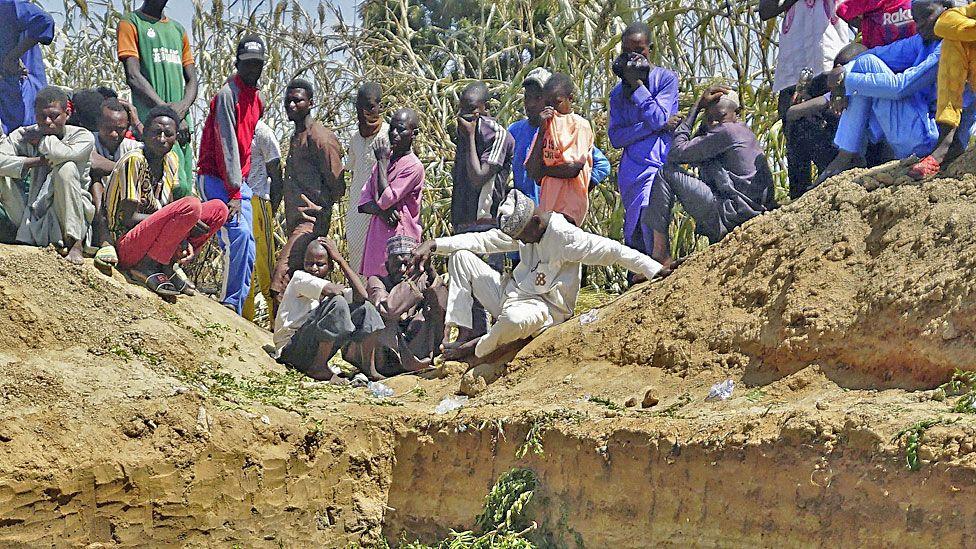In the aftermath of a devastating explosion caused by an overturned fuel tanker in Nigeria’s Jigawa state, farmer Mustapha Majiya is grappling with immense loss. The tragic incident claimed the lives of nearly 170 people, including Majiya’s two teenage nephews, Nuradeen Rabiu, 16, and Dini Babalo, 17, who were attempting to thwart onlookers from approaching the scene while they collected fuel. This horrific event has highlighted the dire consequences of a nationwide fuel crisis driven by soaring petrol prices and persistent shortages, worsening the living conditions for many Nigerians, particularly in impoverished rural communities.
The explosion happened late at night, when the driver of a petrol-laden tanker lost control on an unlit road. As news spread that fuel was leaking, crowds gathered with receptacles to collect the valuable resource. This rush to salvage fuel proved deadly; many failed to heed warnings about the imminent danger surrounding the tanker, which had spilled fuel around a drainage ditch. Majiya’s heartache was compounded by the loss of close friends, including Jamilu Maigaji, a respected elder in the community, who was also at the scene. The tragic events surrounding the explosion serve as a grim reminder of how desperation and poverty can push individuals to take significant risks.
The broader landscape of fuel transportation in Nigeria poses a series of safety hazards. Experts highlight systemic failures in strategic planning and safety protocols as key contributors to the high incidence of tanker-related incidents. The Nigerian government relies heavily on road transport for petroleum products, unlike other countries that utilize a diversified transportation network, including rail systems. The alarming statistics paint a stark picture: over 1,500 accidents involving fuel tankers were reported in 2020 alone, with 535 fatalities. In light of these figures, it is clear that urgent infrastructural changes and stringent regulations are necessary to improve safety and reduce community devastation.
Immediate responses following the latest disaster have centered on increasing public awareness regarding the dangers of approaching accident sites involving fuel tankers. The Senate of Nigeria has urged the National Orientation Agency to bolster these safety campaigns. Vice-President Kashim Shettima echoed the call for improved public safety measures, particularly after witnessing such tragedy firsthand. Recent initiatives like the National Road Safety Advisory Council (Narsac) aim to enhance coordination among governmental bodies to address road safety concerns, suggesting a recognition at the highest levels of the need for reform.
Nevertheless, experts argue that the issue of road safety transcends awareness campaigns; deep-seated systemic problems require addressing. Timothy Iwuagwu, president of the Institute of Safety Professionals of Nigeria, points to failing infrastructure, lack of inspections, poorly trained drivers, and substandard tanker fabrication as critical factors in the recurring accidents. With many fuel tankers being overloaded and compromised, there remains a significant risk factor that endangers Nigerian lives. The necessity for comprehensive road improvement and stringent regulatory frameworks has never been more urgent, especially as the current government’s focus on fiscal stabilization has exacerbated economic hardships.
The sorrow and disbelief felt in Majia reflect a broader national outcry for accountability and protection amidst Nigeria’s ongoing crises. The government has promised support for victims and their families, though historically, compensations and prosecutions following such disasters have been rare. With the country grappling with profound inflation and declining purchasing power—stemming from recent subsidy removals that have drastically increased fuel costs—the push for preventative measures against such tragedies grows stronger. As communities mourn, the call for action resonates, emphasizing the need for systemic change to shield vulnerable populations from preventable accidents and reinforce their dignity in the face of adversity.

